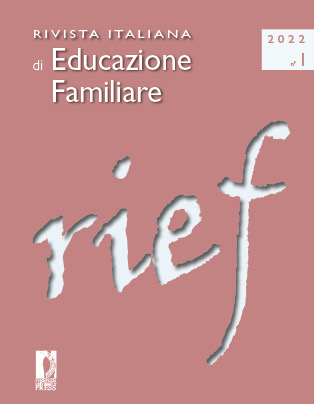Il Reddito di Cittadinanza come opportunità di formazione, capacity building e integrazione fra servizi. L’esperienza del corso nazionale per case manager
Published 2022-07-06
Keywords
- educational poverty,
- integration,
- 0-3 early childhood,
- planning,
- training
How to Cite
Abstract
There is a wide agreement in the literature that educational poverty is considered as a multidimensional and complex phenomenon, as well as a predictor of social inequalities in adulthood. The Italian key-policy against poverty (in Italian, Reddito di Cittadinanza, since 2019) aims at facing this phenomenon through the activation, for some beneficiaries, of Pacts for social inclusion (PaIS). This policy is the more incisive the more the services, in particular those aimed at parenting support and children aged 0-3 years, are integrated and capable of enhancing different disciplines. By contextualising the reference framework to the notion of poverty, the paper presents the three-year training experience of case managers, the practitioners provided within the Reddito di Cittadinanza and involved in the co-construction, together with the beneficiaries, of the PaIS. The paper focuses on the Project work carried out during the course, highlighting its consistency with the theoretical and methodological framework of the Reddito di Cittadinanza, and the ability to respond to the challenges of educational poverty, in terms of participation of families with children from zero to three years old, integration and multidisciplinarity of services, planning, and precocity of interventions.


